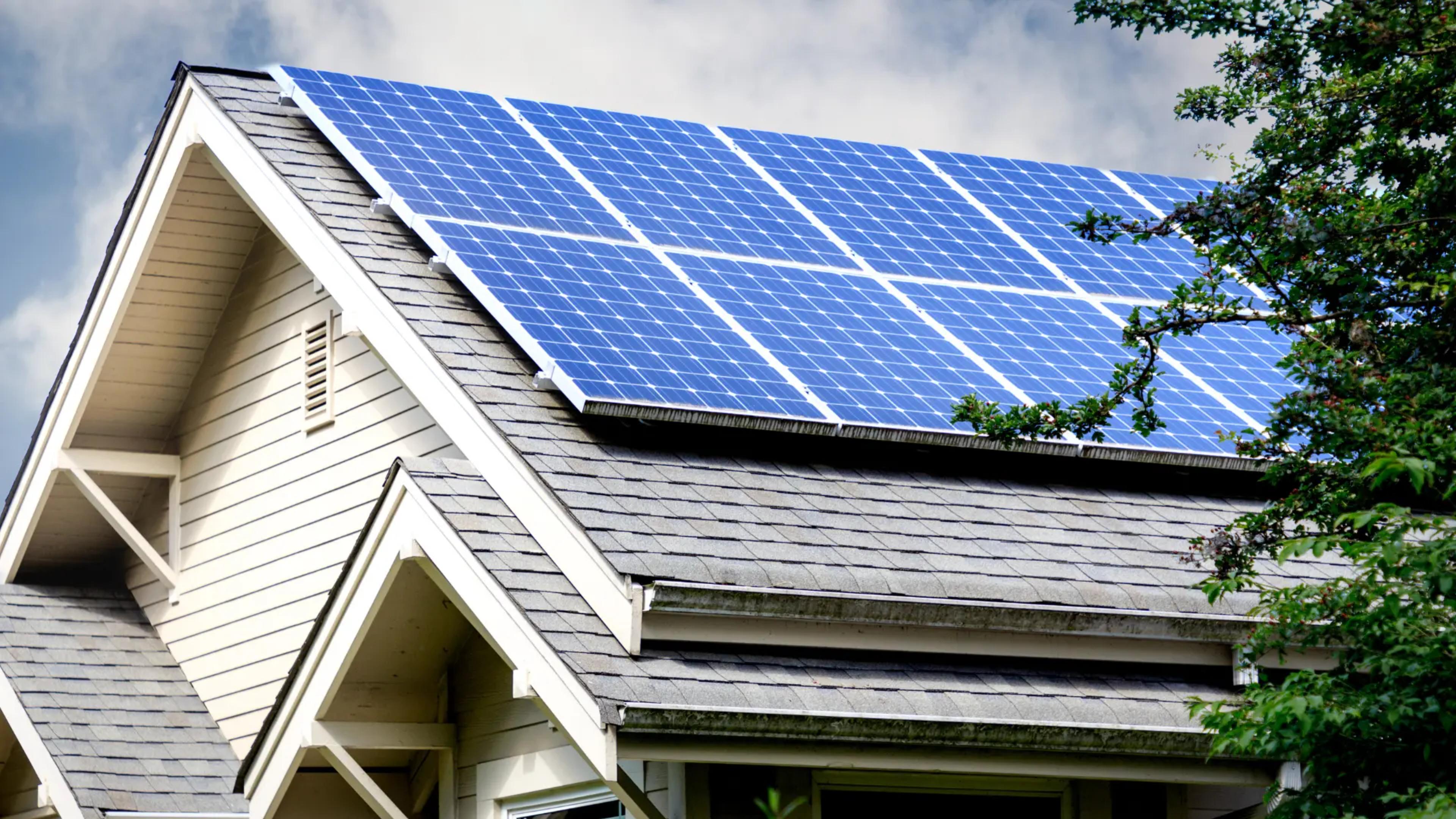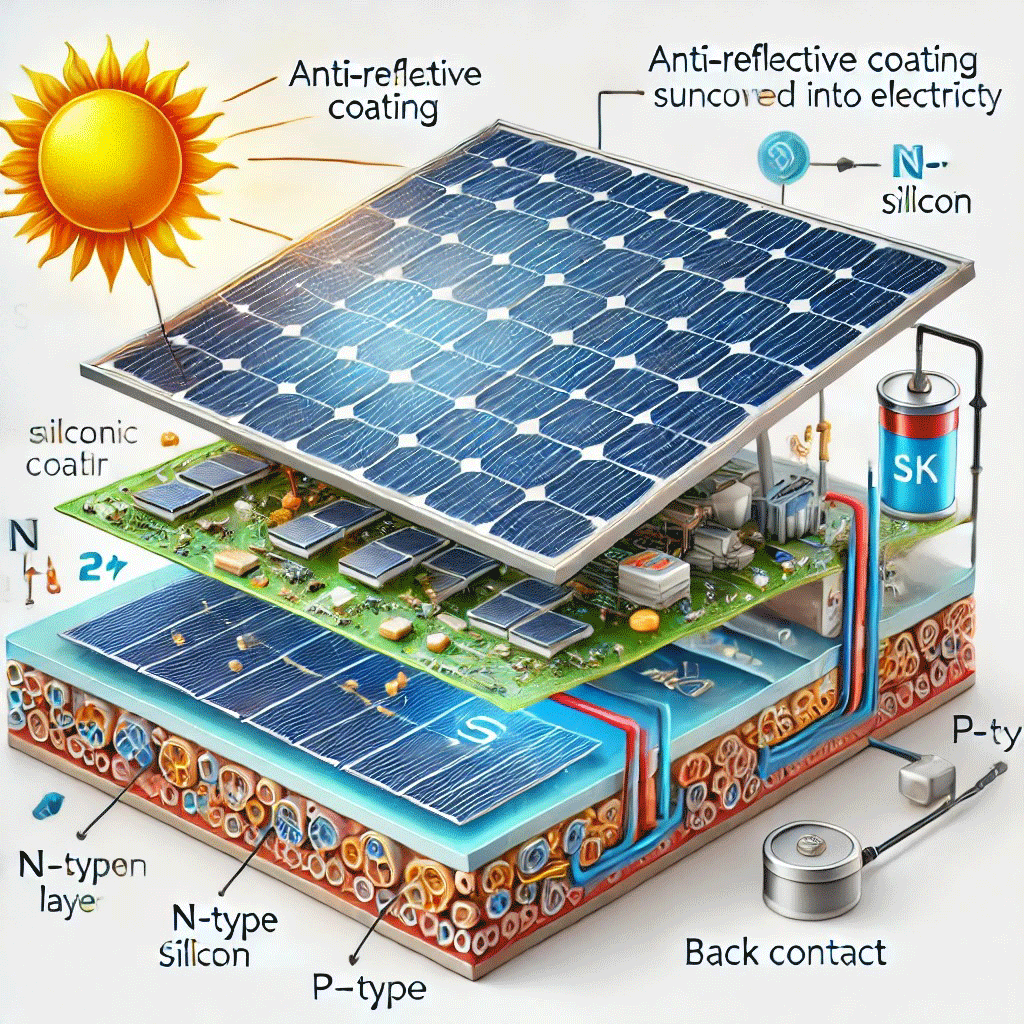Simply Solar Illinois: Sustainable Solar Solutions to Energize Your Home
Simply Solar Illinois: Sustainable Solar Solutions to Energize Your Home
Blog Article
How Solar Energy Can Help You Save Money and Decrease Your Carbon Impact
The integration of solar energy into your power portfolio offers an engaging opportunity for both financial cost savings and ecological stewardship. By utilizing the sunlight's energy, home owners can significantly lower their regular monthly utility expenditures while also guarding versus the changability of future energy prices. The transition to solar contributes to a significant decline in carbon discharges, aligning individual finance with broader eco-friendly objectives. As different government rewards appear, the concern occurs: exactly how can one effectively navigate the initial financial investments and ongoing benefits of solar innovation to optimize both financial and environmental gains?
Understanding Solar Energy Savings
While the transition to solar power commonly entails a first investment, recognizing solar power savings is crucial for homeowners and businesses alike. Solar energy systems can significantly decrease electricity bills by harnessing the sunlight's power, converting into significant lasting monetary advantages.
In addition, solar power systems might receive various economic motivations, including tax obligation credit ratings and discounts, further enhancing their cost-effectiveness. The availability of web metering enables individuals to offer excess energy back to the grid, developing an extra income stream. These elements add to the general savings related to solar power.

In enhancement to direct financial financial savings, solar power offers the included benefit of enhancing building value. Houses outfitted with solar panels are usually more appealing to purchasers, as they guarantee lower energy costs - Simply Solar Illinois. Recognizing these aspects is important for anybody thinking about solar energy, as it highlights not simply the possible financial gains, yet likewise the broader environmental and financial benefits of embracing renewable resource remedies
First Costs vs. Long-Term Advantages
When examining solar power, it is essential to consider the initial prices versus the lasting advantages. The upfront financial investment for photovoltaic panels, setup, and associated devices can be substantial, typically varying from $15,000 to $30,000, relying on the system size and home energy demands. This preliminary expenditure may prevent some property owners; however, it is essential to take into consideration the prospective savings with time.
When set up, solar energy systems can significantly reduce or also eliminate monthly electrical power costs, bring about substantial long-lasting economic benefits. Researches indicate that home owners can save anywhere from $10,000 to $30,000 over the life-span of their planetary system, commonly 25 years. Furthermore, several states provide motivations, tax credit reports, and refunds that can balance out first expenses, making solar extra available.

Minimizing Your Carbon Footprint
Reducing your carbon impact is a vital factor to consider in today's ecologically conscious society, and taking on solar power is one of one of the most efficient techniques to accomplish this objective. Solar power is a tidy, renewable resource that significantly diminishes reliance on nonrenewable fuel sources, which are major factors to greenhouse gas emissions.

In addition, the widespread fostering of solar innovation encourages the advancement of green tasks and supports innovations in power storage and performance. The more people and companies purchase solar energy, the better the collective reduction in carbon exhausts, promoting a cleaner ambience for future generations.
Government Motivations and Discounts
Adopting solar energy not just benefits the setting but can likewise cause significant monetary cost savings, especially with the accessibility of federal government incentives and discounts. Various federal, state, and regional programs are made to encourage house owners and businesses to buy solar power systems, making the shift extra inexpensive.
One of one of the most noticeable motivations is the Federal Investment Tax Credit Scores (ITC), which enables planetary system proprietors to deduct a significant percentage of the installation costs from their federal taxes. This reward has actually been crucial in decreasing the in advance costs linked with solar power read more systems. In addition, many states use their very own tax obligation credits, grants, and rebates that can further enhance cost savings.
Furthermore, resource some local governments offer real estate tax exemptions for solar installments, making sure that home owners do not encounter raised real estate tax as a result of their renewable resource investments. Energy firms may additionally supply incentives, including internet metering and feed-in tolls, which allow solar power customers to sell excess power back to the grid.
Picking the Right Planetary System
Choosing the proper solar system is crucial for maximizing power effectiveness and financial advantages. The decision hinges on several factors, consisting of energy demands, budget plan, and available room. Home owners need to begin by evaluating their electricity intake to identify the system size needed for ideal performance.
Following, think about the various kinds of solar technologies readily available. Simply Solar Illinois. Photovoltaic (PV) panels are one of the most typical, transforming sunlight straight into electrical energy, while solar thermal systems focus on home heating water. Each type has distinctive advantages depending upon individual demands
Budget factors to consider are also extremely important. Initial installment costs can vary dramatically, see it here so it's important to compare quotes from numerous suppliers and explore financing choices. Federal government rewards and discounts can even more minimize the economic concern, making planetary systems extra easily accessible.
Conclusion
The environmental benefits of solar energy contribute to sustainable techniques vital for combating climate change. Federal government rewards improve the feasibility of solar technology adoption, urging a shift towards a cleaner, much more economically effective power source.
Report this page